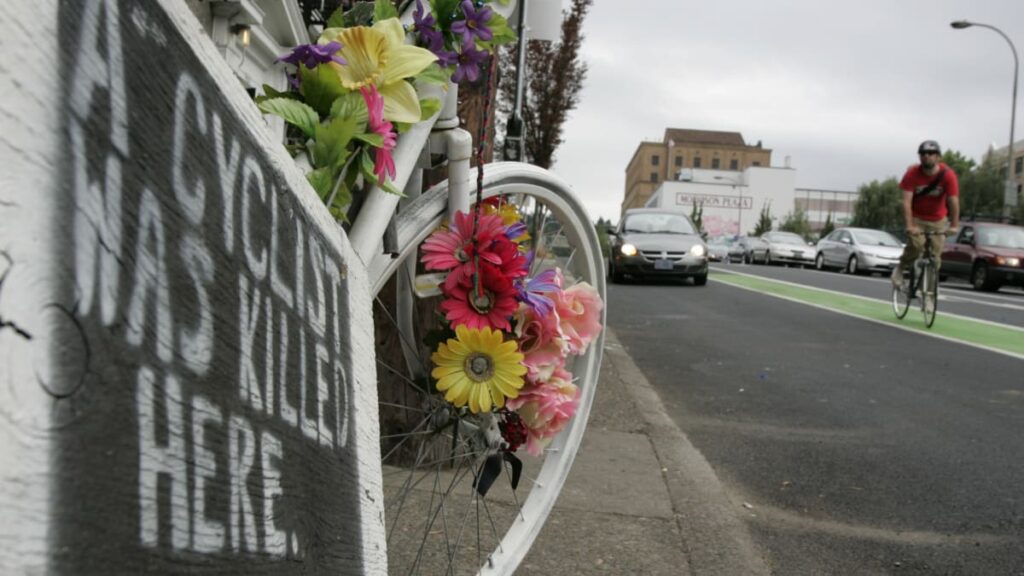Road engineers 'invite crashes,' and a professor calls them to task

The primary role of a traffic engineer is ostensibly to promote safety on the road: a safer environment for drivers, bicyclists, pedestrians — the road users who every year suffer grievous injuries or death on highways.
But in an essay written for The Conversation website by Wesley Marshall, a professor of civil engineering at the University of Colorado, the author argues that traffic engineers have a major responsibility for these accidents and injuries and ignore the real reasons for them.
His piece is titled, “Traffic engineers build roads that invite crashes because they rely on outdated research and faulty data.”
“We underestimate our role in perpetuating bad outcomes, as well as the role that better engineering can play in designing safer communities and streets,“ Marshall writes.
He explains that ascribing fault for crashes to pedestrians, drivers, bikers — what he calls “road user error” — is a mistake, even though he cites a finding by the National Highway Traffic Safety Administration that calls road user error the “critical reason” behind 94 percent of crashes, injuries and deaths.
“How many of those deaths do we blame on big cars or bad streets?” he writes. “The answer is, very few. Police investigate crashes and inevitably look to see which road users, including drivers, pedestrians and cyclists, are most at fault.”
The crash data, Marshall suggests, absolve traffic engineers, planners and policymakers of blame “for creating a transportation system where for most Americans, the only rational choice for getting around is a car.”
But the blame often lies there, he argues.
“When traffic engineers build an overly wide street that looks more like a freeway, and a speeding driver in a Canyonero crashes, subsequent crash data blames the driver for speeding,” he writes. “When traffic engineers provide lousy crosswalks separated by long distances, and someone jaywalks and gets hit by that speeding Canyonero driver, one or both of these road users will be blamed in the official crash report. And when automakers build gargantuan vehicles that can easily go double the speed limit and fill them with distracting touchscreens, crash data will still blame the road users for almost anything bad that happens.”
Marshall offers up some possible solutions, including reassessing the interpretations of crash data and current thinking.
“Figuring out which road user is most at fault may be useful for law enforcement and insurance companies, but it doesn’t give transportation engineers, planners, policymakers or automakers much insight into what they can do better,“ he concludes. “Even worse, it has kept them from realizing that they might be doing anything wrong.”
The essay can be accessed here.



